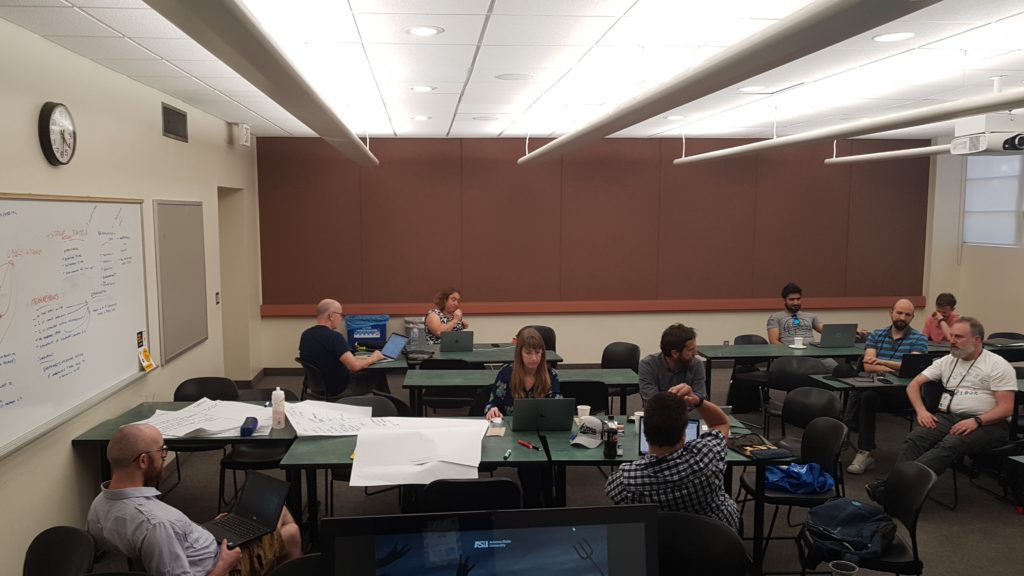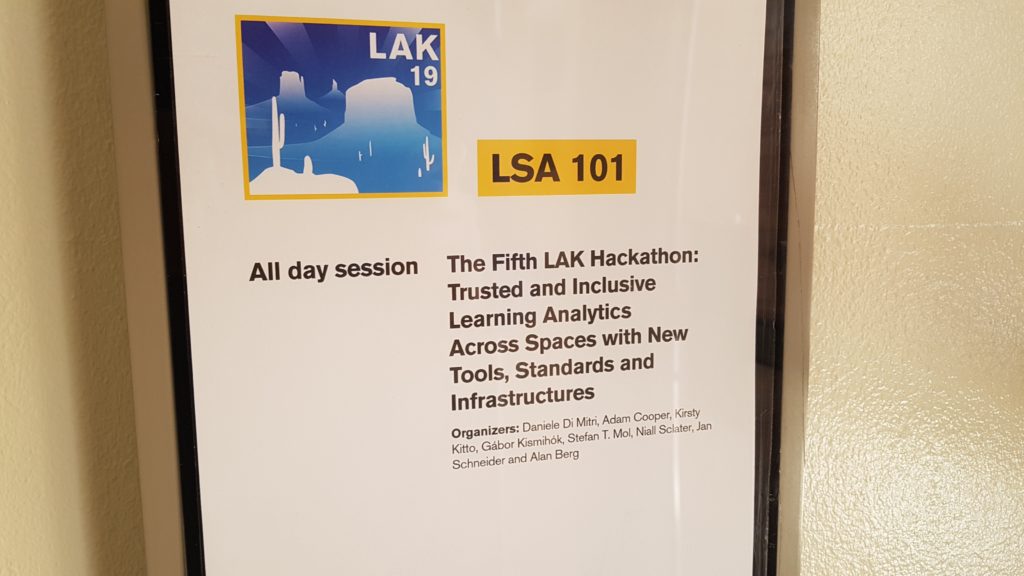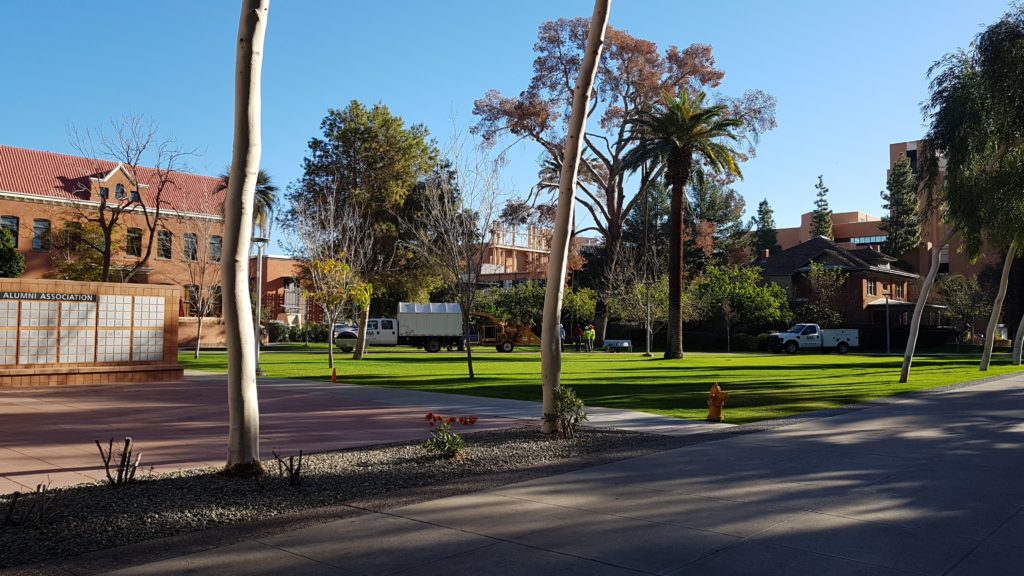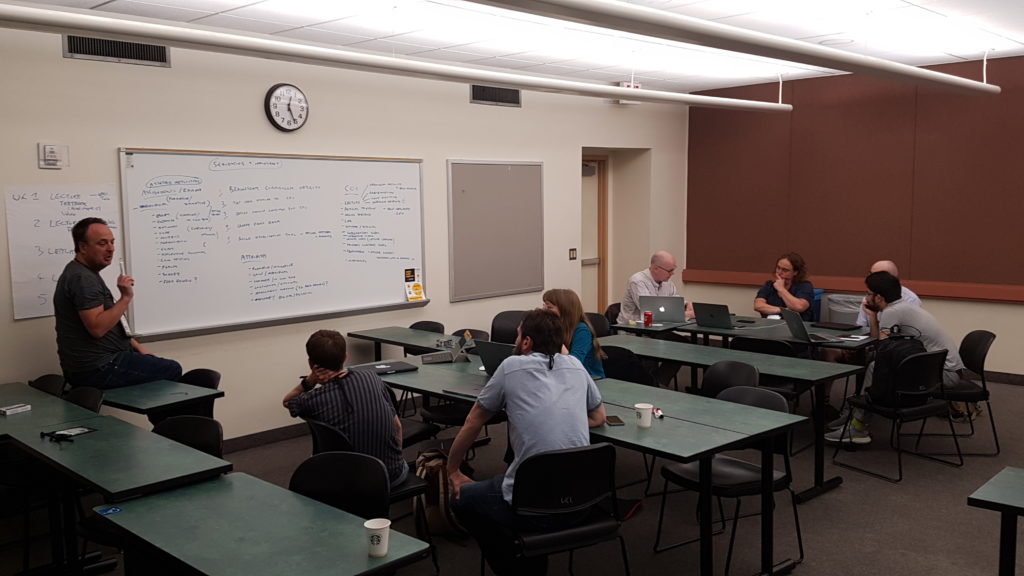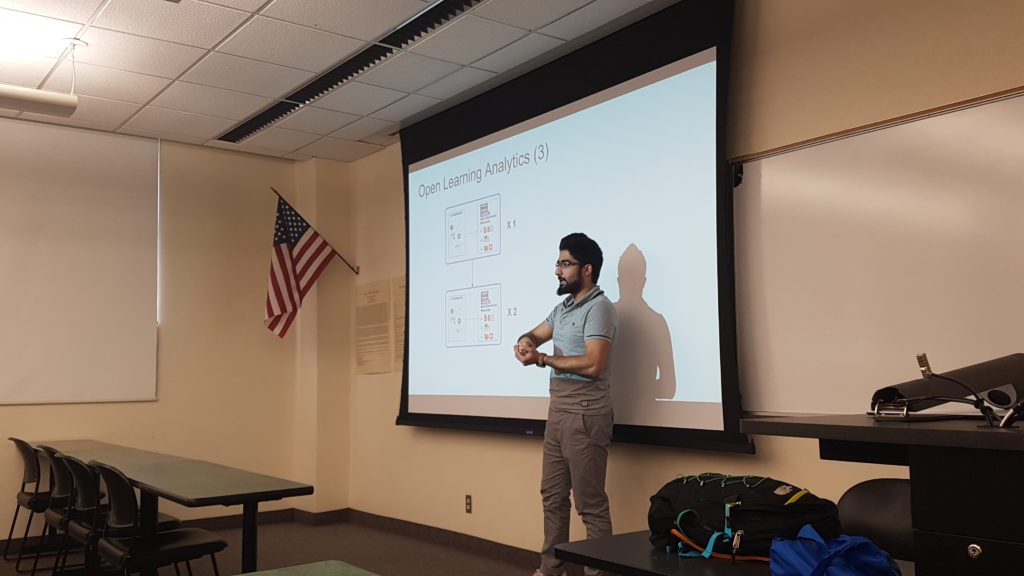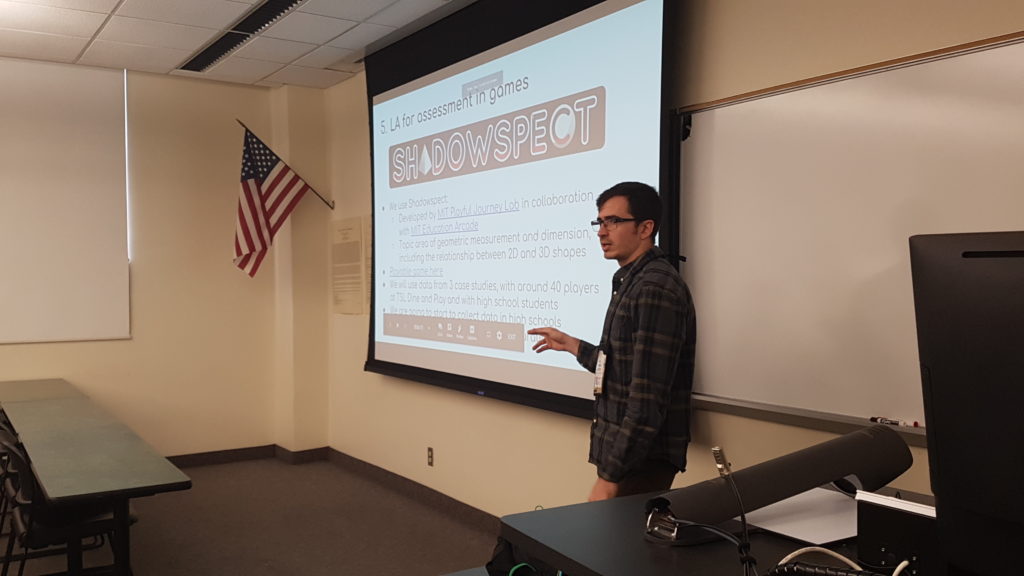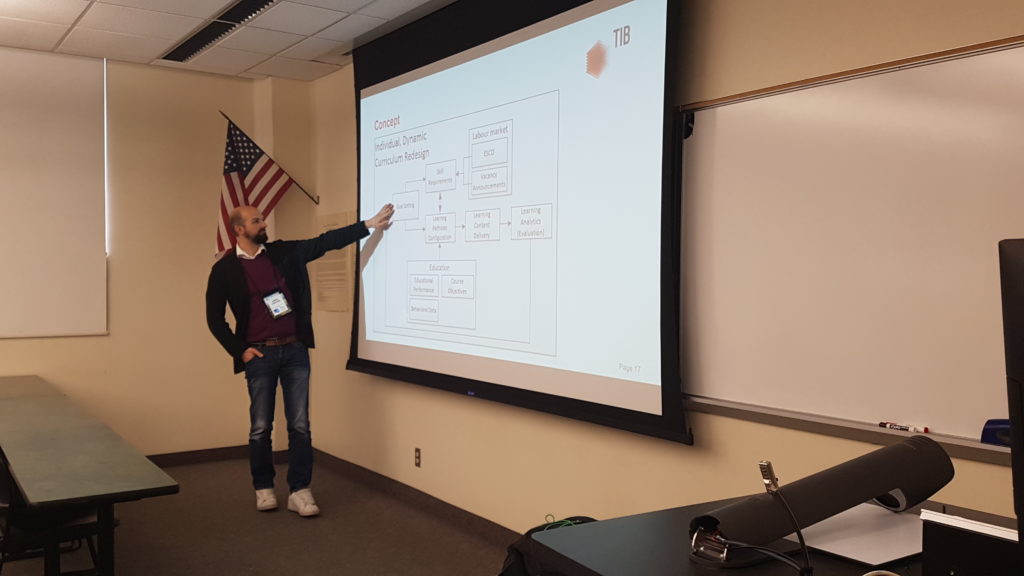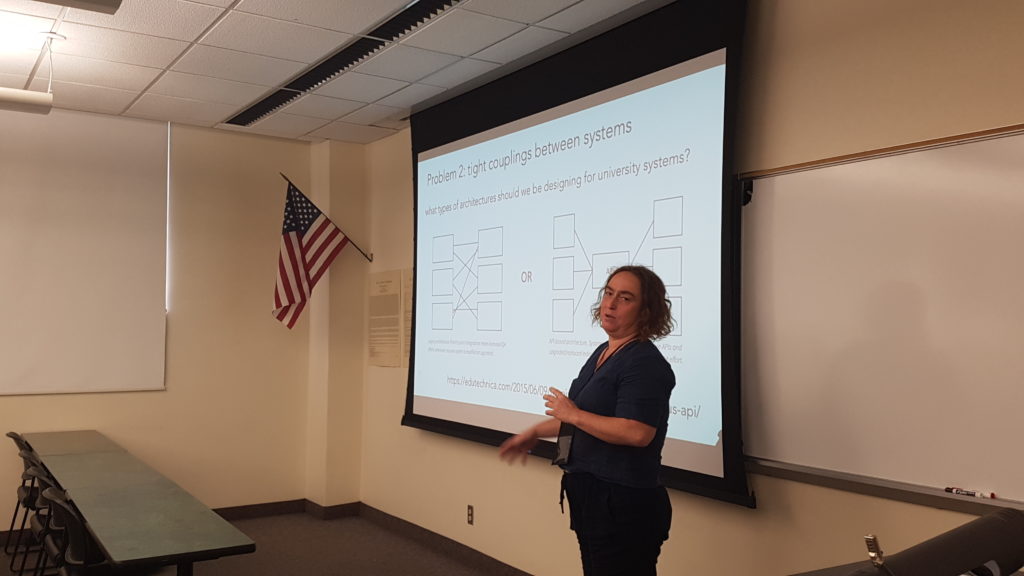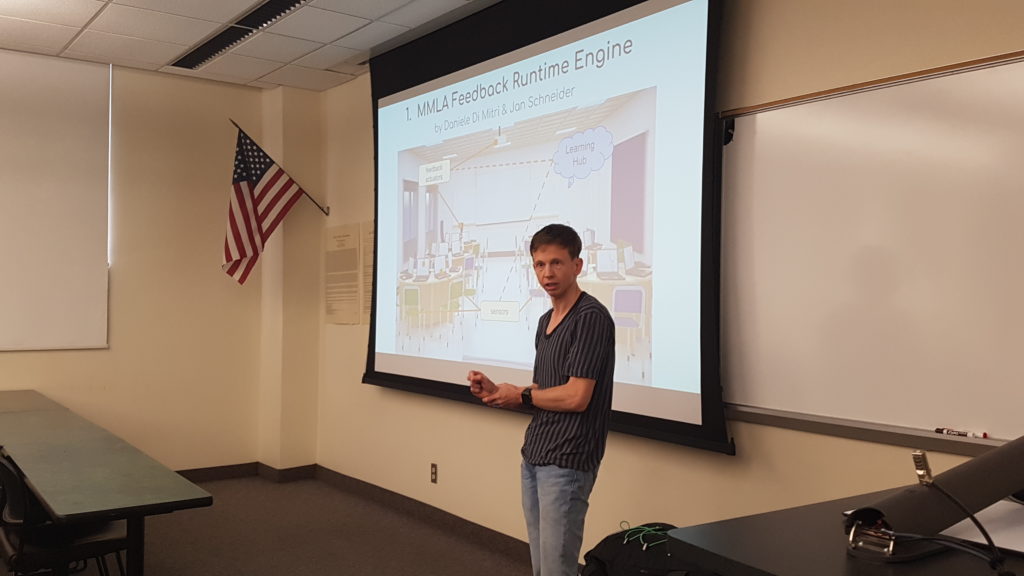March is the month of the Learning Analytics & Knowledge conference, in 2019 has taken place in Tempe, Phoenix, Arizona. Coming back from a very long journey (extended by some days off) in the United States, I decided to wrap up all my conference highlights in a blog post.
To begin with, this year me together with my team had several contributions to the conference:
- A full-conference paper "Read Between The Lines - an annotation tool for multimodal data for learning"
- A demo paper, the "Multimodal Tutor Builder Kit"
- Leading the Fifth Learning Analytics Hackathon (#LAKathon) and proposing one Hackathon Challenge
- Co-leading the CrossMMLA workshop Learning Analytics across Physical and Digital Spaces with Multimodal Data and submitting a position paper about Multimodal Feedback generation
A whole lot of work! Which gave quite some good results. Let's proceed in order.
1. Read Between The Lines
The most important achievement was being able to present our main research contribution, the Visual Inspection Tool, which gave birth to the paper Read Between The Lines. The introduces the Multimodal Pipeline a structured approach for researchers to start MMLA without hassles.
The paper is available in Open Access
Di Mitri, D., Schneider, J., Klemke, R., Specht, M., & Drachsler, H. (2019). Read Between the Lines. In Proceedings of the 9th International Conference on Learning Analytics & Knowledge - LAK19 (pp. 51–60). New York, NY, USA: ACM. http://doi.org/10.1145/3303772.3303776
Also the presentation slides are available for download
2. Best Demo Award
Second most important was our demo, the Multimodal Tutor Builder Kit which got awarded the LAK'19 best demo award. In the
- Learning how to use a screwdriver using Leap Motion
- Learning how to present using the AR Presentation Trainer using Hololens
- The Calligraphy Tutor, created by our colleague
Bibeg Limbu
Our demo was the highest voted demo of the conference, for this reason we got the Best Demo Award.
The two tools we have demonstrated are available in open source on GitHub and ready for use. This aspect was appreciated by many at the conference. We are planning a number of follow up activities of the tools in other academic venues.
3. LAK Hackathon
The Fifth Learning Analytics Hackathon was also a success! As every year the LAKathon brings together researchers, practitioners, doctoral students and other experts to work on multidisciplinary and hands-on challenges.
I had the honour of taking the lead of the workshop, to make sure we had enough challenges submitted and to plan an agenda for the two days. From the 9 initial challenges proposed, this year we worked on
- Curriculum Analytics - making the curriculum of the future data-driven
- Standard challenges - filling up the divergences in xAPI vs Tin Can API
- Game Analytics using ShadowAspects
Some preliminary results are uploaded on LAKathon GitHub Repository.
A more complete post will be posted on the official Workshop website http://lakhackathon.com. There will be more editions of the LAKathon at future LAK but also at similar conferences.
Also we make available the LAK Hackathon Slides
4. CrossMMLA
Last important contribution was participating
Schneider, J., Di Mitri, D. & Drachsler, H. (2019). »Multimodal Learning Analytics Runtime Framework«. In: Proceedings of International Conference on Learning Analytics and Knowledge, Arizona, US, March 7–9, 2019 (LAK ’19).


